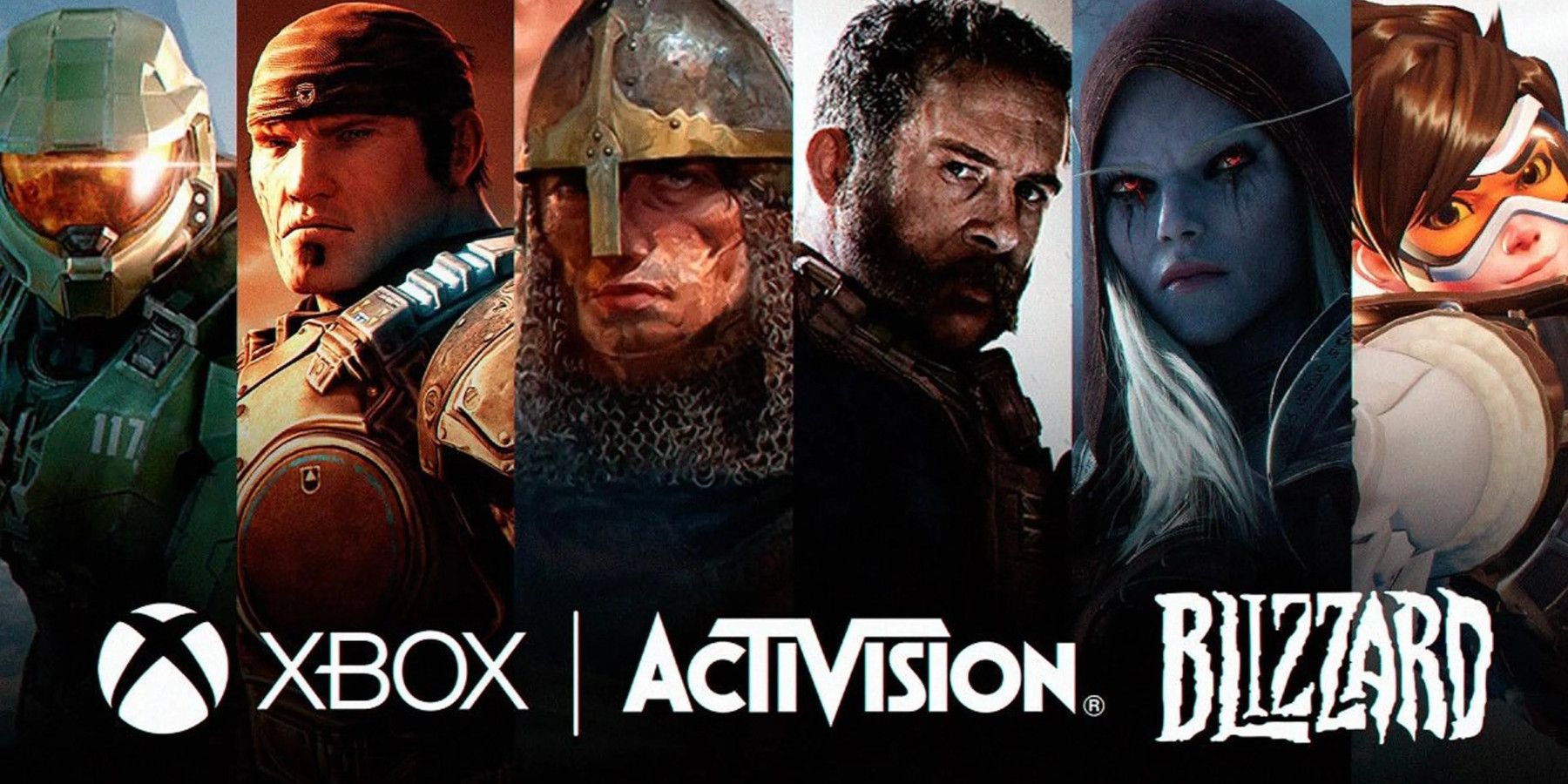FTC To Appeal Activision Blizzard Acquisition Decision

Table of Contents
The FTC's Case Against the Activision Blizzard Acquisition
The FTC's primary argument against the Microsoft-Activision Blizzard merger centers on concerns about reduced competition within the gaming market, particularly regarding the immensely popular Call of Duty franchise. The commission argued that the merger would grant Microsoft an unacceptable level of control, creating an unfair competitive advantage.
- The Stifling of Competition: The FTC argued that Microsoft's acquisition would stifle competition by consolidating significant market share, limiting consumer choice, and potentially harming innovation.
- Call of Duty Exclusivity Concerns: A major point of contention was the potential for Microsoft to make Call of Duty exclusive to its Xbox ecosystem, significantly disadvantaging PlayStation players and potentially harming the PlayStation brand's competitiveness. This fear of exclusivity fueled much of the FTC's opposition to the merger.
- Microsoft's Market Dominance: The FTC highlighted Microsoft's already substantial market presence in the console gaming market and argued that the acquisition would further solidify its dominance, potentially leading to anti-competitive practices.
- Broader Industry Consolidation: Beyond Call of Duty, the FTC expressed wider concerns about the ongoing consolidation of power within the gaming industry, arguing that such mergers can lead to higher prices, reduced innovation, and a less dynamic market for consumers.
The Judge's Ruling and its Fallout
Despite the FTC's arguments, a federal judge ruled in favor of the acquisition, dismissing the commission's claims. The judge's decision hinged on a perceived lack of sufficient evidence to demonstrate that the merger would substantially lessen competition.
- Assessment of the Evidence: The judge's ruling emphasized that the FTC had failed to provide compelling evidence to support its claims of anti-competitive behavior. The judge seemingly found the FTC's concerns regarding Call of Duty exclusivity to be less impactful than the FTC had portrayed.
- Points of Disagreement: A key point of disagreement centered around the potential impact on the gaming market, with the judge seemingly giving more weight to Microsoft's commitments to keep Call of Duty available on other platforms than the FTC's concerns about long-term market dominance.
- Immediate Reactions: The ruling sparked immediate reactions across the industry. Microsoft and Activision Blizzard celebrated the victory, while Sony expressed its disappointment and concerns about the potential for future anti-competitive actions. The ruling itself caused significant market volatility in the gaming sector.
The Implications of the FTC's Appeal
The FTC's appeal significantly prolongs the uncertainty surrounding the acquisition and sets the stage for a protracted legal battle. The outcome of the appeal could have profound implications for the gaming industry and future mergers.
- A Lengthy Legal Process: Appeals in such cases are complex and time-consuming, often taking many months, if not years, to resolve. This period of uncertainty is costly and disruptive to all parties involved.
- Potential for Reversal: While not guaranteed, the appeal presents a potential for the judge's decision to be reversed. A reversal would require the appellate court to find that the lower court made a significant legal error or that the evidence overwhelmingly supported the FTC's claims.
- Impact on Future Mergers: The outcome will set a crucial precedent for future merger approvals, not just within the gaming industry, but across the broader tech sector. A successful appeal could lead to stricter scrutiny of large tech mergers and acquisitions.
- Setting a Precedent: This case has the potential to reshape the regulatory landscape for antitrust enforcement in the tech industry, potentially establishing significant legal precedent in how future cases involving gaming and technology mergers are handled.
The Broader Context: Antitrust Enforcement and the Gaming Industry
The FTC Activision Blizzard Acquisition Appeal is part of a larger trend of increased regulatory scrutiny of mega-mergers in the tech industry. Global regulatory bodies are increasingly concerned about the potential for unchecked consolidation of power within powerful sectors.
- Increased Scrutiny of Tech Mergers: The FTC's actions reflect a growing global trend towards more stringent antitrust enforcement in the tech sector, mirroring similar investigations and actions by regulatory bodies in Europe and elsewhere.
- Challenges of Regulating Dynamic Markets: Regulating rapidly evolving markets, such as the gaming industry, presents unique challenges for regulatory bodies. Keeping pace with technological advancements and understanding the long-term implications of mergers and acquisitions is crucial but difficult.
- Impact on Future Regulatory Decisions: The outcome of the appeal will undoubtedly influence future regulatory decisions regarding gaming mergers and acquisitions. It will shape the approach taken by regulators in evaluating similar transactions and could lead to more stringent guidelines for future mergers.
Conclusion
The FTC's appeal of the Activision Blizzard acquisition decision is a watershed moment for the gaming industry and antitrust enforcement. The ramifications extend far beyond this specific merger, potentially altering the competitive dynamics of the gaming market for years to come. The outcome will establish a significant precedent for future merger approvals and shed light on the continuing tension between powerful tech companies and regulatory efforts to maintain fair competition.
Call to Action: Stay informed about the latest developments in the FTC Activision Blizzard Acquisition Appeal. Follow our blog for continuous updates and analysis on this landmark case and its implications for the future of gaming. Further research into the FTC Activision Blizzard Acquisition Appeal will provide more detailed insights into this complex and evolving legal battle.

Featured Posts
-
 Artis Goesteren Sms Dolandiriciligi Sikayetleri Tehlikeler Ve Oenlemler
May 08, 2025
Artis Goesteren Sms Dolandiriciligi Sikayetleri Tehlikeler Ve Oenlemler
May 08, 2025 -
 Saglik Bakanligi Personel Alimi Son Dakika 37 Bin Hekim Disi Personel Alimi Basvuru Sartlari Ve Tarihi
May 08, 2025
Saglik Bakanligi Personel Alimi Son Dakika 37 Bin Hekim Disi Personel Alimi Basvuru Sartlari Ve Tarihi
May 08, 2025 -
 Jayson Tatum Game Status Celtics Vs Nets Injury Report And Prediction
May 08, 2025
Jayson Tatum Game Status Celtics Vs Nets Injury Report And Prediction
May 08, 2025 -
 Understanding Penny Pritzkers Role In The Harvard Admissions Dispute
May 08, 2025
Understanding Penny Pritzkers Role In The Harvard Admissions Dispute
May 08, 2025 -
 Enjoy Cashback And Support Local Businesses With Uber Kenya
May 08, 2025
Enjoy Cashback And Support Local Businesses With Uber Kenya
May 08, 2025
